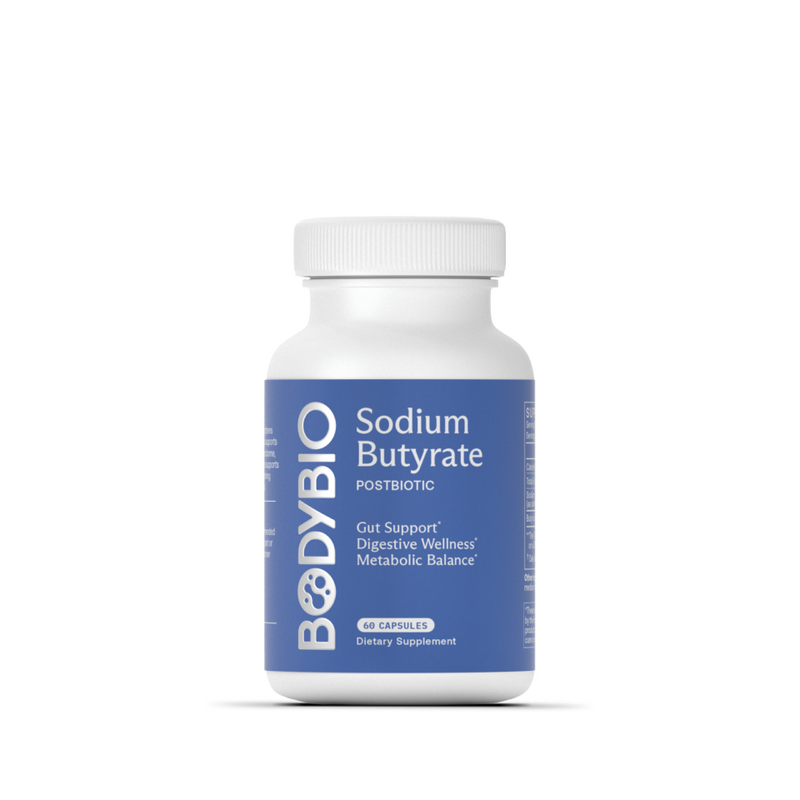Natural Ways to Cleanse and Restore Your Gut
Authors:

Ashley Palmer
Nutritional Therapy Practitioner, Health & Wellness Expert
Key Takeaways:
- Why gut health is the foundation of overall well-being
- Signs that your gut may need a detox
- Natural strategies to support your gut's detoxification process
- Foods and lifestyle habits that promote gut health
- How long it takes to detox your gut
Why Gut Health Matters
Your gut does more than digest food—it acts as a command center for many vital functions in your body. With 70–80% of immune cells residing in the gut, there is a powerful connection between gut health, the microbiome, and both local and systemic immune responses. Emerging science shows that nutrition directly influences the composition of the gut microbiota, thereby impacting immunity and the body's ability to fend off infectious diseases.
However, when the gut is strained by toxins, poor diet, or chronic stress, the delicate balance can be disrupted, leading to "leaky gut"—a condition where the intestinal lining becomes permeable. This allows harmful substances to enter the bloodstream, triggering widespread inflammation and potentially weakening the body's immune defenses.
Supporting your gut through natural detoxification approaches is a powerful way to reset digestion, reduce inflammation, and rebuild the microbiome that keeps you thriving.
Signs Your Gut Needs a Detox
Your gut might be crying out for support if you're experiencing symptoms like:
- Persistent bloating or gas
- Irregular bowel movements
- Food intolerances or sensitivities
- Brain fog or fatigue
- Skin breakouts or dull complexion
- Chronic inflammation or autoimmune flare-ups
These signs may indicate that your gut is struggling to manage the toxins and inflammatory inputs it faces daily. Luckily, with the right tools, your gut can recover.
How Do You Detox Your Gut Naturally?
Contrary to trendy detoxes that rely on juice fasts or extreme elimination diets, real gut detoxification happens through daily habits that support your body's natural processes.
Here are the foundational strategies:
The Role of Fiber-Rich Foods in Gut Cleansing
Fiber acts like a broom for your intestines. It helps move waste and toxins out of your digestive tract while feeding beneficial gut bacteria that produce anti-inflammatory compounds like butyrate. Aim for a variety of soluble and insoluble fibers from sources like flaxseeds, chia, oats, lentils, and leafy greens.
Hydration and Its Impact on Digestion
Water plays a critical role in the body's detoxification processes. It facilitates the elimination of metabolic waste products through urine and sweat, promotes healthy bile production for effective fat digestion and toxin excretion, and supports optimal gastrointestinal motility to prevent stagnation in the digestive tract. Try starting your day with warm lemon water and sipping mineral-rich water throughout the day (check out our E-lyte to supporting electrolyte balance).
The Importance of Probiotics and Prebiotics
Probiotics (beneficial bacteria) and prebiotics (the nutrients that feed them) work together to support a resilient and balanced gut microbiome—an essential foundation for overall health. Probiotics are found in fermented foods like sauerkraut, kimchi, kefir, yogurt, and miso, while prebiotics come from fiber-rich plant foods such as garlic, onions, leeks, asparagus, bananas, oats, and Jerusalem artichokes.
When your gut bacteria are nourished and balanced, you can experience improved digestion, a more robust immune response, and greater emotional well-being. Probiotics are especially known for reducing issues like diarrhea, constipation, and inflammation, while enhancing nutrient absorption, supporting bile salt metabolism, and producing protective compounds that deter harmful microbes. Their wide-ranging benefits may also extend to conditions like allergies, infections, fatigue, obesity, and metabolic disorders by strengthening the gut barrier, modulating immune function, and neutralizing toxins—making both probiotics and prebiotics vital allies in your wellness routine.
Eliminating Toxins and Inflammatory Foods
Gut healing often starts with what you remove:
- Cut back on added sugars, processed foods, refined oils, and alcohol.
- Avoid common irritants like gluten and dairy (at least temporarily).
- Reduce exposure to environmental toxins like pesticides, plasticizers (BPA), and heavy metals.
What Foods Cleanse the Gut?
The foods you eat can directly influence how effectively your gut performs these functions. Incorporating specific whole foods into your diet can help naturally cleanse and support your digestive system:
- Cruciferous vegetables (such as broccoli, cauliflower, and cabbage): These are rich in sulfur-containing compounds like glucosinolates, which enhance liver enzyme activity and support the detoxification of harmful substances.
- Leafy greens (like spinach, kale, and chard): Packed with magnesium and fiber, these help regulate bowel movements and maintain healthy gut motility.
- Beets: A natural source of betaine, beets stimulate bile production, which aids in the breakdown and elimination of fats and toxins.
- Apples: Contain pectin, a soluble fiber that helps sweep waste through the digestive tract and supports beneficial gut bacteria.
- Bone broth: Rich in collagen and amino acids such as glutamine, which help repair and strengthen the gut lining, especially in cases of leaky gut.
- Fermented foods (such as sauerkraut, kimchi, kefir, and yogurt): These introduce beneficial probiotics that restore and maintain a healthy gut microbiome.
Consuming a colorful, varied diet of whole, unprocessed foods gives your body the essential nutrients and fiber it needs to support natural detoxification pathways and promote long-term gut health.
Lifestyle Habits That Support Gut Detoxification
Managing Stress for Better Gut Health
The gut-brain connection is real. Chronic stress can alter your gut microbiome and increase intestinal permeability. Incorporate mindfulness practices like breathwork, meditation, or journaling to support a balanced nervous system—and gut.
The Role of Sleep in Digestion and Detox
The body's detoxification and gut repair processes are governed in part by the circadian rhythm, a biological clock that regulates physiological functions over a 24-hour cycle. During deep sleep, the liver ramps up detoxification activity, the glymphatic system clears metabolic waste from the brain, and the gut lining undergoes critical cellular repair and regeneration. Consistently achieving 7–9 hours of uninterrupted sleep helps synchronize hormonal signals like melatonin and cortisol, which are essential for maintaining gut barrier integrity, reducing inflammation, and optimizing microbial balance within the gastrointestinal tract.
How Long Does It Take to Detox the Gut?
There's no one-size-fits-all answer. Some people notice changes within a few days of implementing a gut-supportive routine—less bloating, more energy, clearer skin. But real healing takes time. Depending on the severity of symptoms and your overall health, gut detox can take anywhere from two weeks to three months.
Consistency is key. Think of gut detox not as a one-time event but a lifestyle of supporting your body's natural rhythms.
Final Thoughts: Maintaining a Healthy Gut Long-Term
Gut detox isn't about quick fixes—it's about creating a foundation for lifelong vitality. By focusing on nourishment, hydration, stress management, and microbiome balance, you give your gut the environment it needs to thrive.
Where Butyrate Comes In
At BodyBio, we're passionate about restoring gut health at the cellular level—and one of the most powerful tools in our arsenal is BodyBio Butyrate, a vital short-chain fatty acid (SCFA) produced in the colon through the fermentation of dietary fiber. As we age, the diversity and abundance of beneficial gut bacteria that naturally produce butyrate tend to decline due to factors like poor diet, medications, and physiological stress. This reduction can compromise intestinal barrier function, immune regulation, and overall digestive resilience, making supplemental butyrate increasingly important for maintaining gut health over time.
Butyrate plays a multifaceted role in digestive health:
While fiber feeds butyrate-producing bacteria, modern diets and stress often reduce natural production. Supplementing with Butyrate can help bridge the gap—supporting your detox pathways and keeping your gut environment strong.
It's not a cleanse. It's a reset from the inside out.




